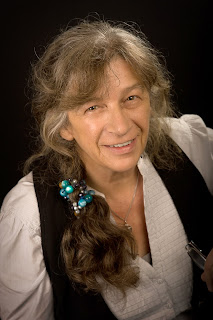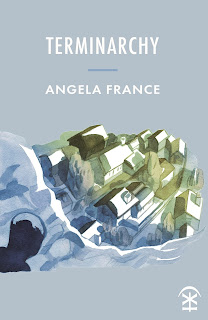A. S. Andrejevic is a Serbian-British writer whose work has appeared in The Lampeter Review, Storgy, The Wrong Quarterly, Scrutiny Journal, The Dawntreader, Scary Mommy, Literary Mama, Brain, Child, and other magazines. Her plays have been longlisted for the Bruntwood Prize, shortlisted by Bristol Old Vic, and supported by Arts Council England. She’s represented by Lorella Belli Literary Agency, and her debut novel, Under the Same Moon, is due out with APS Books in September 2025. She teaches Creative Writing at the University of Gloucestershire, where she encourages her students to think big, write with honesty, and stay true to their voice.
Under the Same Moon is a suspenseful story about Serbian emigrants in London during the 1990s wars, and how their past continues to haunt them, even decades later.
Jelena has built a very English life - now known as Helen, she relishes her elegant home in north London, her doting husband and two children, and the complete erasure of the country she once fled. But when a man she hasn’t seen in sixteen years shows up at her door, everything she’s built begins to unravel.
Told across two timelines and set in London and Belgrade, the novel weaves together the elegant neighbourhoods of West Hampstead, Soho’s underground clubs, and the shattered streets of 1990s Serbia and Kosovo. It’s a story of memory, identity, and the difficult choices we make to survive - and who we become as a result.
From Under the Same Moon
"You won't invite me to come in?" Mladen says in Serbian.
"Come in?" she repeats pointlessly, as if there is anything else he could be talking about. To come in. Into her home.
It feels odd to be speaking in her old language, probably the first time it's ever been spoken on this road. You can overhear it sometimes in Shepherd's Bush or the distant boroughs of East London, where Serbian stores smell of smoked ham and restaurants serve veal soup and pretend cheese-pie (because you just can't get cheese sour enough to pass for Serbian). But everyone speaks English here.
She manages to focus back on the figure standing in front of her. "You mean, now?"
He just keeps looking at her, his face still, undisturbed by the rain sliding into a trickle around his square chin. The garden is caught in a side wind and one of the flowerpots tumbles off its stand with a crash.
"Unless I'm not welcome," he says.
"Of course you are," she says and glances back over her shoulder. "The only thing is …" She's hoping for a sudden noise, something to make her family's presence obvious, off-putting.
"U cemu je stvar, Jelena?" What's the thing?
She scrambles for an answer. "My children are in bed," she says. "And my husband is working. I mean – working in his office. If I'd known you were coming –"
"I don't have your number."
"I could give it to you now?" She's never been a good liar, although she did manage that one time when it counted, in the car park at Sofia airport. "I'm free tomorrow. I could buy you lunch."
"Now is better," Mladen says and makes a small step towards her. She doesn't mean to move but somehow she yields, and in the next instant he's inside.
Afterwards, she'll agonise over this: would he have left them alone if she'd stood her ground?




